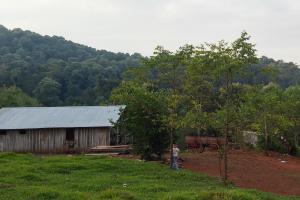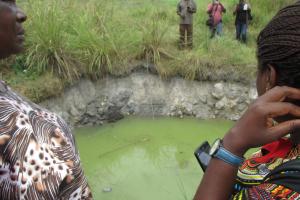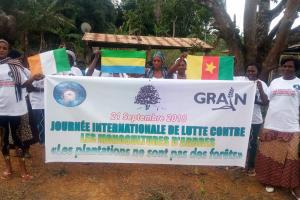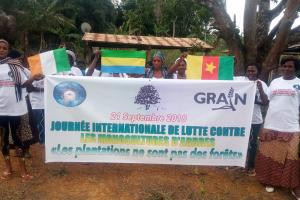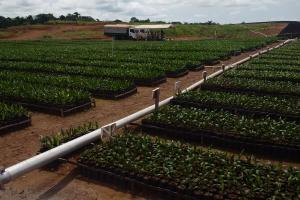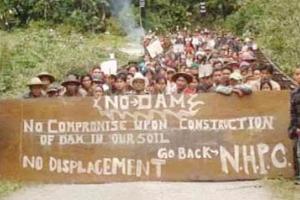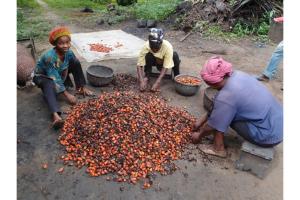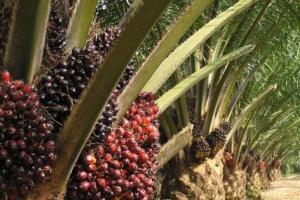Palm Oil
The oil palm tree is native to West Africa. It is an important tree for forest-dependent communities, their cultures and their economies. However, large-scale oil palm monocultures for industrial production (oil and agrofuels) have been driving deforestation and land grabbing in Southeast Asia. More recently, oil palm monocultures are also driving destruction in Africa and Latin America.
While the destruction of forest territories continues, more pledges, agreements and programs are being implemented in the name of ‘addressing deforestation and climate change’.
Only available in French.
Certification schemes for tree plantations initially generated many expectations, promising a true transformation. Yet after all these years, we can definitely conclude that what the RSPO and FSC also have in common is that they will not meet those expectations.
The expansion of industrial oil palm plantations by OLAM hit the village of Sanga in the South of Gabon particularly hard: The community's main water source became so polluted that the water is now unsafe for drinking and not suitable for other daily uses.
Women affected by OLAM’s oil palm plantations, during a meeting in the village of Fera, in Gabon, decided to send a letter to FAO denouncing the impacts they are suffering.
